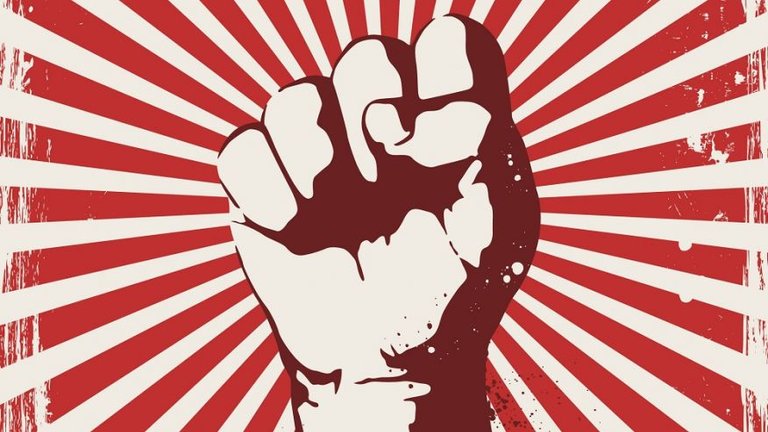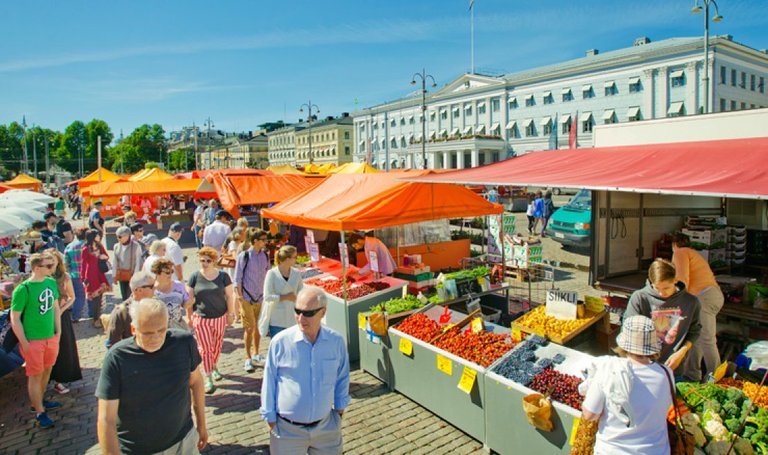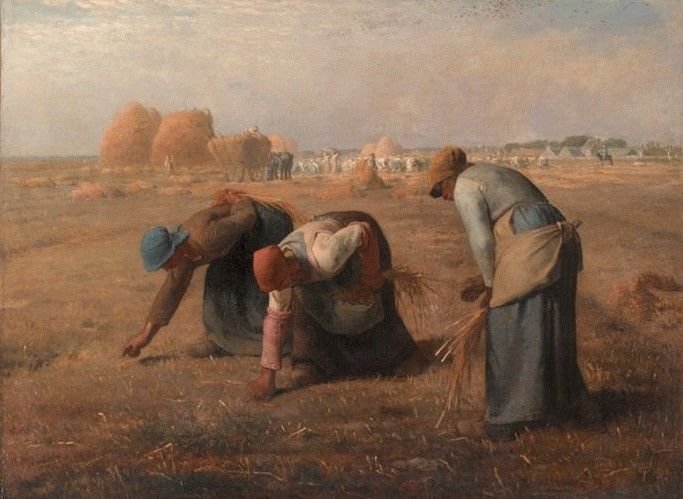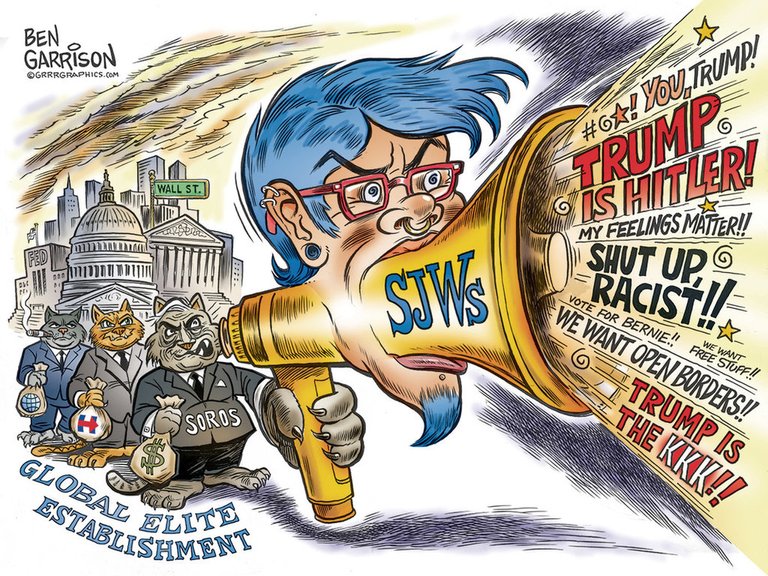In this essay I will deal with something that is according to me an interesting phenomena that is very obvious, probably unavoidable to someone who pays attention. That phenomena are so many intellectuals being advocates of socialism or some other similar forms of anti-market ideas and ideologies including ones that we consider, if we look at a usual understanding of political compass – to be somewhat right wing.
First we need to clarify who do we consider for intellectuals in this case. Under „intellectuals“ that we will deal with are mostly ones that deal with words – poets, novelists, professors that work in academia, media and the bureaucracy. Those people form our views and their opinions are taken into account, so it is very imporant to at least try to explain that connection. Of course, there is a great number of intellectuals that dealt with science and numbers, but they are not interesting to us now.
Most of these intellectuals believe that society should reward everyone based on their merit and value. In a free society, which includes free market as it's infallible element, and an element that goes without saying when classical liberals talk about free society, with exception of gifts, inheritance and gambling market directs resources to those who meet needs on the market. But most intellectuals don't consider that this kind of distribution fits under „everyone according to their merit and value“, even through they themselves have relatively high income in capitalism. Indeed, the more successful intellectuals, chance of them being against capitalism grows. Why?

One of the biggest factors that direct intellectuals towards anti-capitalism, but of course it does not guarantee anything is a feeling of superiority and betrayal from the system which they expect bigger evaluation and power. Unsuccessful capitalist do not have the same animosity towards the system. Intellectuals feel that they have the biggest value and that society does not value them enough. Since history is being recorded intellectuals tell us that what they do is of highest importance. Example: Aristotle, he tough that intellectual contemplation is of the highest value, while other activities like hunting are inferior.
What is the greatest contributor to such feelings? The answer is - schools. Formal education one in which young people of the same age are put in a same environment and valued according to things like knowing literature, history and similar where they are very successful. With their system of evaluations schools showed them that they are better high grades, being „your teacher's favorite“, all kinds of praises etc. In schools they where taught things that represent grater value to them in comparisons to some other values and ensured them greater prizes.
But market society does not care for such things, prizes don't go to „the brightest“, their familiarity with philosophy, history, literature is not evaluated so much. How is that capitalist society - according to them - denies them things that they are entitled to?

“More fair“ society according to them means changing the system of distribution of goods and services to planned system where their „brightness“ - that is now unfairly neglected in „anarchy and chaos“ of the market can finally come to light. Very often you can hear from people that advocate socialism can be heard that planned economy will „free“ us in a way that it will get us rid of „less valuable“ jobs so we can dedicate ourselves to art and literature that we as a whole humanity appreciate more, but - sadly, we are forced to leave it aside because we live in capitalist society that oppresses us. Why don't the the students that are good with numbers don't have such feelings? Because they don't get the same sort of approval and attention that children who are good with words get, event trough they can be very successful in their field of study.
Furthermore, prizes in that kind of society are distributed by a central authority - teacher, while outside of the classroom other rules are in place under which intellectuals are not on the „top“. That's because for them „centrally planned“ system where well know rules are in place and where well known values are evaluated is more appropriate.
Then, we enter the school system as young kids, and of course that those who are the best in that system will have greater chances to internalize the norms of that kind of centrally planed system. They are have a harder time to „separate“ themselves from it when they get into broader society, outside of school and academia. There is of course a frustration with possible „displacement“ to a place that is relatively lower in comparison to one in schools, so there is a hostility to broader society and seemingly chaotic ways of organizing life.

Of course, that is not „carved in stone“, not everyone who lives trough something like this will not have such feelings towards the market, but that kind of „downward mobility“ is a factor that usually gives that kind of results.
I think that education system should „give“ only the basic tools and give us more freedom to direct ourselves. I'm sure that this kind of system would give us more experts in various fields, and probably more „intellectuals“, but without any kind of aspirations for central control and with more understanding for broader society and all seemingly incomprehensible phenomena, customs and needs that it consists.
One more important thing that needs to be explained and understood in relation with this phenomena, it did not came with institutionalizing of public education, but much, much earlier. I would even say that kind of outcome is unavoidable. How? First, imagine that you live in some earlier age, without all the new technology - 500, 1000 or even more years backwards. There is a big chance that you needed to use your own muscles for working on the field. You had to wait for the crops to grow and it you could not never br sure that they will. That insecurity carries with it a great deal of stress and anxiety. You could do everything you are supposed to do during the summer do to get the crops next year, but nothing could guarantee it.
Hard work is one of the ways of collecting resources needed for survival, the other way is theft. If you are dexterous, strong enough and you maybe have some kind of weapon you could try theft. But with theft there is a problem - theft is mostly dangerous because nobody wants their hard earned resources to be taken. But what if you don't want to steal, but you don't want to work either, and you are very intelligent? That' where superstition and all kinds of rituals come into play. How? You can help those people who work hardly and who are under stress and anxious by asking the skies to let the rain fall, soil to be arable, winter to be short etc. Of course you will charge your "special powers" even trough you don't have an effect on the environment in any way.

That kind of „theft“ functioned until The Enlightenment, that's when we start - instead just trying to change our feelings about something - start to use reason, science, newly developed tools and production processes. Humanity's standard of living rises, but we don't need superstitions anymore. What do you do? One thing that humans are good at as a species (it helped us stay survive and thrive for so long) is adjustment. Instead of dealing with other's peoples anxiety like some kind of a priest, now are you „intellectual“ that deals with fear. Racism, sexist, xenophobe etc. You know that most people are afraid that they get their name linked to there kinds of epithets so you have a luxury asking for public money, government jobs, all kinds of subsidies, money for „research“ etc.

Great article. Paul Johnson wrote a book about a similar subject. It is called "The Intellectuals." It is about these "great" thinkers of the 20th century that lived their personal lives like hell.